-
What helps, or prevents, U.S. military interventions from achieving their goals?
Using an original data set of 145 ground, air, and naval interventions from 1898 through 2016, a new report identifies those factors that have made U.S. military interventions more or less successful at achieving their political objectives. The United States has successfully achieved its political objectives in about 63 percent of the interventions, but the levels of success have been declining over time as the United States has pursued increasingly ambitious objectives.
-
-
U.S., Russia, China race to develop hypersonic weapons
Russia and China have recently touted their progress in developing hypersonic vehicles, which fly much faster than the speed of sound, which is 767 mph. Hypersonic missiles are rocket-boosted to high altitude and may be launched from land, sea or air. Over the past 60 years, U.S. interest in hypersonic vehicles has waxed and waned. Now it seems the U.S. is back in the hypersonic effort in a serious way.
-
-
Using AI in future hypersonic systems
A test launch for a hypersonic weapon — a long-range missile that flies a mile per second and faster — takes weeks of planning. So, while the U.S. and other states are racing to deploy hypersonic technologies, it remains uncertain how useful the systems will be against urgent, mobile or evolving threats. Sandia National Laboratories thinks artificial intelligence and autonomy could slash these weeks to minutes for deployed systems.
-
-
World military expenditure reaches $1.8 trillion in 2018
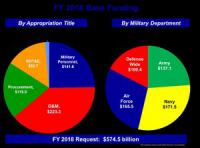
Military spending in Ukraine and several other Central and Eastern European countries rose sharply in 2018, largely in reaction to perceived threats from Russia, a leading research institute says. Total world military expenditure rose to $1822 billion in 2018, representing an increase of 2.6 percent from 2017, according to new data from the Stockholm International Peace Research Institute (SIPRI).
-
-
Nonviolent ways to exploit Russian vulnerabilities
Russia’s use of information warfare and its conventional military arsenal make it a formidable opponent, but the state also has significant weaknesses that could be exploited, according to a new report.
-
-
Lasting U.S. preeminence: A review of Michael Beckley’s “Unrivaled”

The Economist last year proclaimed that the “Chinese century is well under way,” and that China is on its way to replacing the United States as the new global “hegemon.” Tufts University’s Michael Beckley says: Not so fast. He argues not only that U.S. preeminence is safer than most contemporary commentary would have one believe, but also that it is more resilient: “Unipolarity is not guaranteed to endure,” he concludes, “but present trends strongly suggest that it will last for many decades.”
-
-
Climate change: Our greatest national security threat?
The climate century is here: the earth is warming, humans are to blame, and we must take immediate action now to prepare for climate change’s massively disruptive consequences. Mark Nevitt writes in Just Security that No longer can climate change be categorized solely as an environmental issue—it is a grave threat to national security. Indeed, it may be the threat. While there are many national security challenges facing the nation and the world, climate change is an aptly described “super wicked” problem that exacerbates and accelerates already existing threats.
-
-
Israeli air strike destroys Iranian missile production, storage facility in Syria
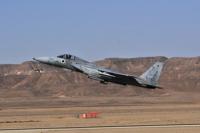
Satellite images released Sunday by ImageSat International (ISI) showed the impact of an airstrike, blamed on Israel, on a missile base in Syria on Saturday evening that reportedly killed Iranian personnel. Israeli analysts say that recent Israeli air strikes in Syria probably would not have passed without public Russian comment had Israel and Russia not reached an understanding designed to reduce possible friction and improve early warning between Israeli and Russian armed forces operating in Syria.
-
-
As Russia expanded its Arctic Sea presence, U.S. observers see veiled threat

Some U.S. military officials and legislators have expressed concern that Washington isn’t paying enough attention to Russia’s military entrenchment in the region. They say the Department of Defense Arctic Strategy, last updated in 2017, largely got overlooked in the more all-encompassing National Defense Strategy, the main U.S. military strategy document signed by the chairman of the Joint Chiefs of Staff.
-
-
Killer robots already exist, and they’ve been here a very long time
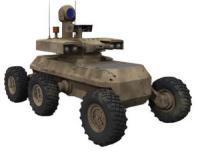
The question is not so much whether we should use autonomous weapon systems in battle – we already use them, and they take many forms. Rather, we should focus on how we use them, why we use them, and what form – if any – human intervention should take.
-
-
Mapping out virtual world for U.S. military
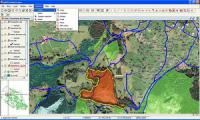
When the U.S. military interviewed more than 100 experts about conflicts in Syria and Iraq, the resulting intelligence was so extensive that analysts joked about needing executive summaries for the executive summaries. Scientists at Argonne National Laboratory convert complex data into 3D digital visualizations to provide spatial and geographic context.
-
-
Russia sends military planes to Venezuela

Russia, a key ally of under-siege President Nicolas Maduro of Venezuela, sent two planes with military supplies and troops to shore up the Maduro regime. Russia had already sent two Tu-160 strategic bombers to Venezuela in December to support Maduro. Three months ago the two nations held military exercises in Venezuela.
-
-
Chances of UN banning killer robots looking increasingly remote

The Campaign to Stop Killer Robots warns chances of achieving a U.N. treaty banning the development, production and use of fully autonomous lethal weapons, also known as killer robots, are looking increasingly remote. Experts from some 80 countries are attending a weeklong meeting to discuss the prospect of negotiating an international treaty.
-
-
Dunford: Google’s work with China “challenges” U.S. military advantage

The top U.S. military officer has called out U.S. technology giant Google for its artificial intelligence venture in China, saying it “creates a challenge” in maintaining a U.S. military advantage over the Chinese.
-
-
U.S. military steps up cyberwarfare effort
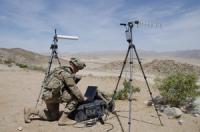
The U.S. military has the capability, the willingness and, perhaps for the first time, the official permission to preemptively engage in active cyberwarfare against foreign targets. The first known action happened as the 2018 midterm elections approached: U.S. Cyber Command, the part of the military that oversees cyber operations, waged a covert campaign to deter Russian interference in the democratic process.
-
More headlines
The long view
Factories First: Winning the Drone War Before It Starts
Wars are won by factories before they are won on the battlefield,Martin C. Feldmann writes, noting that the United States lacks the manufacturing depth for the coming drone age. Rectifying this situation “will take far more than procurement tweaks,” Feldmann writes. “It demands a national-level, wartime-scale industrial mobilization.”
